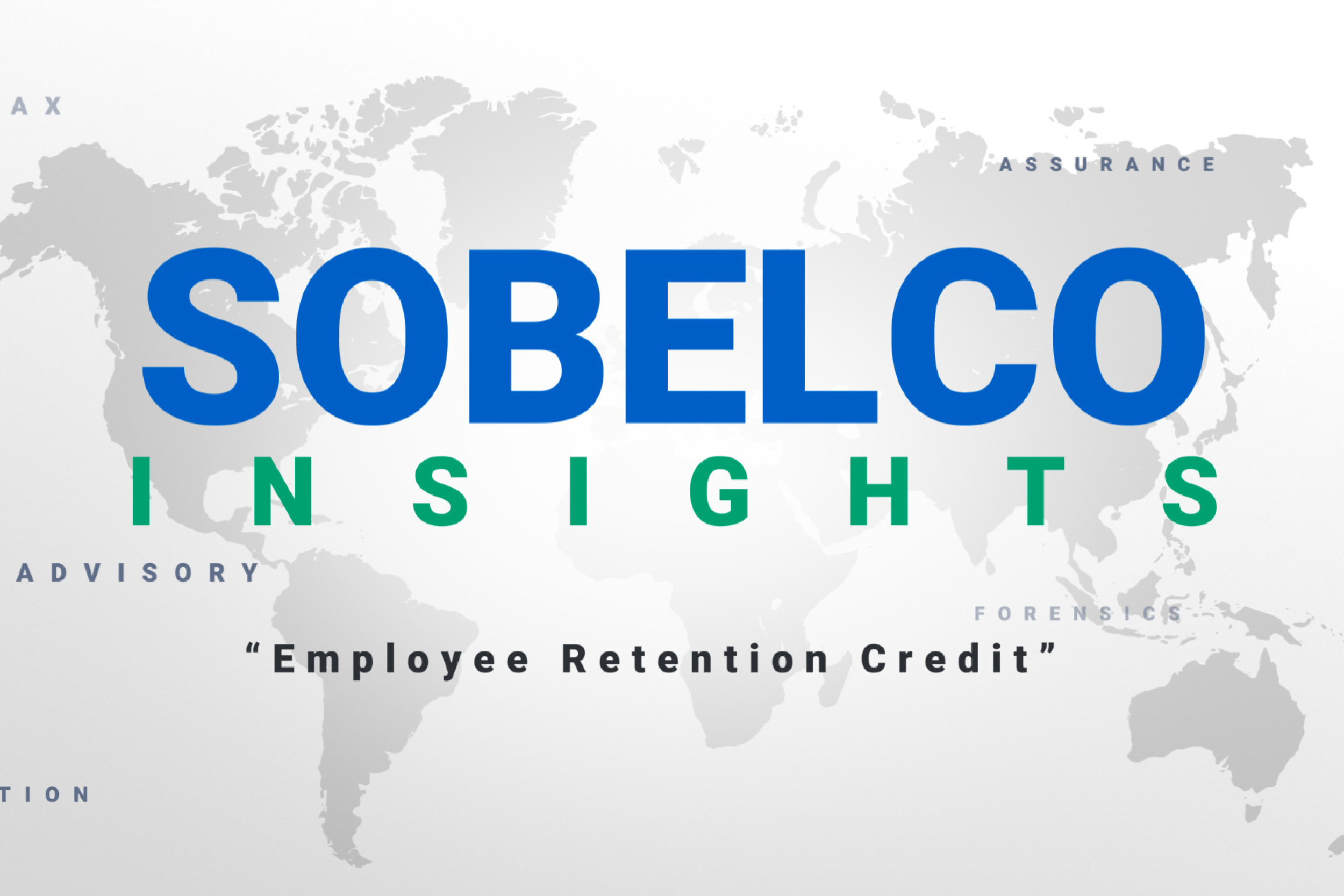
What an interesting ride it has been since I first sent a letter to Governor-Elect Phil Murphy offering a workaround solution for the State and Local Income Tax (SALT) deduction limitations that had been enacted as a result of the federal Tax Cut and Jobs Act of 2018 (TCJA). At that time, I had no idea what would transpire as a result of my letter, much less anticipate that I would have a front row seat on the journey toward the legislation that would eventually incorporate key tenets of my suggestion.
How it all began
My intention in writing this article is to discuss the law and its impact on business owners in New Jersey, while at the same time taking this opportunity to share my personal experiences throughout the legislative process as my original concept evolved into tax law.
A brief background on flow-through entities
Many small businesses are formed as so called “flow-through entities,” including S-Corporations, LLCs, Partnerships and more. Tax advisors have recommended utilizing flow-through entities for decades because they offer an efficient and effective method for reducing tax rates on small and mid-sized companies. To this day, flow-through entities generally make good tax sense, as opposed to forming a C-corporation where long term double taxation can be very expensive for a business owner.
In flow-through entities, owners are typically responsible for reporting their share of company profits on their individual tax returns and pay taxes on that income. It is common that while the individual is responsible for the payment of the tax, the funds are generally provided by the flow-through entity by a distribution of the profits that created the individual level tax.
And this is where the SALT limitation under TCJA created a challenging tax issue for a business owner.
Since the business was not directly paying the tax, the individual business owner would no longer be able to deduct, for federal income tax purposes, state and local taxes on the taxable income of the business. Considering that a business usually can deduct all of its ordinary and necessary expenses, the inability to deduct SALT became a particularly harsh consequence for the business owner.
It was the inequity from a lack of deductibility of a business expense that got me wondering. I asked myself, “What if… instead of the individual being assessed and paying the state tax, the entity itself was responsible for the taxes?” After all, other states and localities have forms of taxes that are assessed on the entity and those are deductible under federal tax rules. Examples of entity level taxes that are deductible for federal income tax purposes include the NYC Unincorporated Business Tax and Texas Franchise Tax.
When I first pondered the solution, I assumed that someone must have already brought this idea to the attention of our state’s leaders. But, I quickly became concerned that even though others may have the idea, what if no one did anything to bring the idea to the attention of those who could advance a change. That was what motivated me to write then Governor-Elect Phil Murphy in early January 2018. At the time I presented the idea to him of how to help NJ business owners save taxes without it costing the state any lost tax revenues. This truly tax neutral plan for New Jersey would simultaneously reduce the effective rate of NJ state income taxes for business owners by up to one-third. It had to be a no brainer!
Fortunately for me, and for many business owners in the state, the idea resonated with several legislators. However, I was totally unaware of what was transpiring as several sponsors of proposed legislation held a press conference in March 2018 in Trenton. Their purpose was to announce that they would be developing a bill that would essentially accomplish the goals I had set out in my letter to Governor Murphy. And (here is the cool part) – they credited me with the idea at that press conference!
Behind the scenes, prior to that important press conference, Ralph Thomas (the CEO of the NJ Society of CPAs) was serving on a task force for NJ Senate President Steve Sweeney that culminated in a report known as the Path to Progress. Included in the report was the plan to introduce legislation that would modernize the way NJ taxed flow-through entities to create a work around to the SALT limitations under TCJA.
The next steps
Over the following two years, I had the privilege of helping to shape the legislation, comment on proposed amendments, offer solutions on problematic areas, submit testimony to both chambers of the NJ Legislature and, most importantly, ensure the legislators honestly adhered to the concept so that this initiative did not turn into a revenue raiser for the state – which was one of the main principles behind the idea.
On December 16, 2019, after what seemed like a long wait after four prior unanimous bi-partisan votes to advance the legislation, the New Jersey Assembly and NJ Senate each passed the Business Alternative Income Tax (BAIT) Act without a single objection. That made six separate votes on this bill in the NJ Legislature without a single NO vote!!
We then waited with much anticipation of what the Governor would do. He had several options including signing it, vetoing it or conditionally vetoing it. We knew that we were approaching the end of a two year legislation cycle and if this passed legislation did not become law during the current session, we would have had to start all over again.
With literally just minutes to go before the deadline, I learned that the bill (S3246) was in fact signed and became the law in New Jersey on January 13, 2020. After all the work and waiting, we ended up with a great result for New Jersey business owners and a very rewarding and valuable learning experience for me.
How it will work
Starting in 2020 under the Business Alternative Income Tax Act (BAIT), LLCs, Partnerships, and S-Corporations will be able to elect to be taxed in New Jersey at the entity level which will create a full deduction of those taxes when computing federal taxable income.
Adopting this as an elective tax was important to ensure that out of state business owners would not get double taxed for the same income in their resident state and thereby maintain the goal of revenue neutrality.
Without getting deeply into details, it is typical that resident taxpayer’s states permit credits for income taxes paid to other jurisdictions to avoid double taxation. Since the NJ BAIT is being paid by the entity, it is not clear how individual states will interpret and apply the principles of this type of entity tax and the corresponding credit that would have been available if the tax was paid by the individual owner. Therefore making the BAIT elective, permits planning to maximize the potential benefits and avoid the pitfalls of increased taxes.
When the election is made to have an entity level tax, the individual New Jersey income taxpayers will receive a 100% credit for the entity taxes paid against their state of NJ taxes to avoid assessing a tax on the same income twice.
There are several circumstances where a business may want to opt out of electing the tax. These include:
- Businesses with non-NJ resident owners
- Owners that have multiple businesses that result in an aggregate taxable loss
- Businesses where the cost of making the election (mostly professional time to analyze and complete the filings) will exceed the benefits
- Taxpayers who have a concern the federal government will attack NJ’s treatment of the Business Alternative Income Tax.
What will the future bring?
Having been a part of the process from the beginning, my expectation is that this law is on reasonably solid footing. Although I am not a lawyer, I am not a constitutional scholar, and I am not a legislative expert, I hold this opinion for several reasons. I will explain my rationale.
- There is a precedent already set. Several states moved faster than New Jersey and have already adopted a form of a flow-through entity tax, including Connecticut and Wisconsin. The good news is that so far the IRS has not challenged these states treatment and some experts believe the IRS would have already challenged the concept if they intended to (although in fairness it is still early).
- It is well established that under the United States Constitution, states have the right to tax their citizens and the businesses that operate in their state as they deem fit. Following that logic, here in NJ the state should have the right to design its tax system for flow-through entities in the manner of its choosing.
- The Internal Revenue Code amendments and the supporting conference reports of the TCJA appear to only preclude the deduction of state and local income taxes for individuals, not for entities.
- Paying state taxes is an ordinary and necessary business expense and businesses have historically been able to deduct ordinary and necessary business expenses and state and local taxes.
How will the Pass-Through Business Alternative Income Tax Act work?
Here is an example of a situation that will assist in the explanation of the BAIT:
Assume that your W2, interest and dividend income in 2019 was $400,000. Assume also that income from your flow-through entity was $500,000 of taxable income in 2019. The NJ individual tax on your flow-through income in 2019 was $45,000…and not deductible against your federal taxable income.
However, starting in 2020, because of the NJ flow-through entity level tax, your business entity can elect to pay tax on that $500,000 of income and take a corresponding deduction for those taxes paid against the federal taxable income that would flow to your individual income tax return.
The point is that while you will report the income on your personal 1040, you will receive 100% credit for the taxes paid at the entity level and pay no more state taxes than you would have paid prior to enactment of the BAIT. Because your federal taxable income is lower by the BAIT, you will save as much at $11,000 of federal tax as a result of your flow- through entity making this election. This will repeat itself year after year unless the federal government changes the rules again.
Compliance guidelines going forward
The New Jersey Division of Taxation will be providing rules on how to report the income, how estimates are to be paid, and other relevant implementation issues in the coming months. In the meantime, my colleagues at SobelCo and I look forward to talking to you about this new tax law and how it can serve to save you and your business substantial taxes over the coming years.
From letter to law
In closing I would like to add that while I have shared my personal story of this journey, there were many other people who provided significant help and support along the way.
These include my colleagues at the New Jersey Society of CPAs – Jeff Kaszerman, Ralph Thomas, James Evans and Karen Artasanchez and our lobbyist David Smith from Princeton Public Affairs. It also includes a new friend, Bill Love, who had independently developed a similar idea that he shared with the media as well as with NJ business owners and leaders at just about the same time as I did. I also want to thank Senator Steve Sweeney and his staff (especially Mark Magyar and Luke Wolff) and last, but not least, I also appreciated the time and efforts of Assemblyman Dan Benson who helped get a stalled process back on track.


